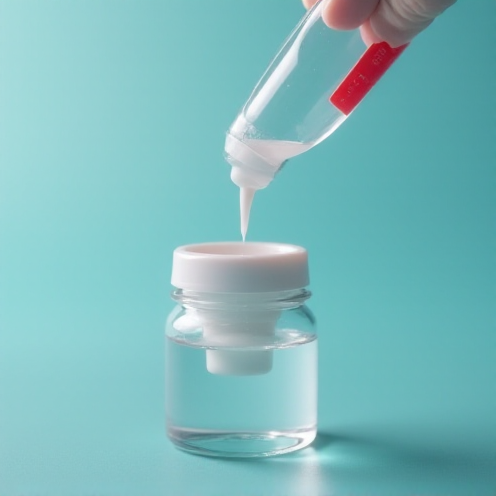Sucracoat Suspension
Product Info
| Prescription required | Yes |
| Marketer | Biostrass Health Sciences Pvt Ltd |
| Active Ingredient | Sucralfate (1000mg) |
| Storage | Store below 30°C |
| Chemical Class | Disaccharide Sulfates |
| Habit Forming | No |
| Therapeutic Class | GASTRO INTESTINAL |
| Action Class | Anti-Ulcerants |
| User Rating | 4.4 |
| User Reviews | 753 |
FAQ
























Sucracoat Suspension Reviews
Sucracoat is taken one hour before meals preferably at bedtime in the dose and duration advised by the doctor. You should keep taking this medicine for as long as your doctor recommends. If you stop treatment too early your symptoms may come back and your condition may worsen.
The most common side effect of Sucracoat are constipation and headache. To prevent constipation, take plenty of fluids while on treatment with this medicine. Dizziness and sleepiness may occasionally occur, so do not drive or do anything that requires mental focus until you know how this medicine affects you.
Before taking Sucracoat inform the doctor if you are suffering from any liver or kidney disease. Let your doctor know about all other medications you are taking as some may affect, or be affected by this medicine. Do not take antacids within two hours of taking Sucracoat.
How Sucracoat Suspension Works
How to Use Sucracoat Suspension
Benefits of Sucracoat Suspension
- In Treatment of Stomach ulcers: Stomach ulcers are painful sores that develop in the inner lining of the stomach. Sucracoat is used to treat stomach ulcers. Sucracoat covers the damaged ulcer tissue in the stomach and protects it against stomach acid or further injury. This helps ulcers heal more quickly. $also gives relief from pain and discomfort in the stomach associated with stomach ulcers. You need to keep taking the medicine as it is prescribed for it to be effective, even if the symptoms seem to disappear.
- In Treatment of Intestinal ulcers: Intestinal ulcers are painful sores that develop in the inner lining of the intestine. Sucracoat is used to treat intestinal ulcers. Sucracoat works by reducing the amount of acid your stomach makes, preventing further damage to the ulcer, and heals naturally. Sucracoat also reduces pain and bleeding associated with intestinal ulcers. You may be given other medicines along with this medicine depending on what caused the ulcer. You need to keep taking Sucracoat as prescribed by the doctor for it to be effective, even if the symptoms seem to disappear.
Uses of Sucracoat Suspension
- Treatment of Intestinal ulcers
- Treatment of Stomach ulcers
Sucracoat Suspension Side Effects

Safety Tips
Quick Tips
- It may take 4-6 weeks or more for the ulcers to heal completely. Do not stop taking the medicine until your doctor tells you to.
- Do not take antacids 30 minutes before or after taking this medication.
- Use caution while driving or doing anything that requires concentration as Sucracoat can cause dizziness and sleepiness.
- Sucracoat aids in healing of ulcers in the stomach and intestine.
- Use caution while driving or doing anything that requires concentration as Sucracoat can cause dizziness and sleepiness.
- Inform your doctor if you have a kidney disorder.
- It may take 4-6 weeks or more for the ulcers to heal completely. Do not stop taking the medicine until your doctor tells you to.
- Take it on an empty stomach, preferably 1 hour before a meal.
- Do not take antacids 30 minutes before or after taking this medication.
- Inform your doctor if you have a kidney disorder.
- Take Sucracoat on an empty stomach, preferably 1 hour before a meal.
References
- Central Drugs Standard Control Organisation (CDSCO).
- McQuaid KR. Drugs Used in the Treatment of Gastrointestinal Diseases. In: Katzung BG, Masters SB, Trevor AJ, editors. Basic and Clinical Pharmacology. 11th ed. New Delhi, India: Tata McGraw Hill Education Private Limited; 2009. pp. 1075-76.
- Sucralfate. Bridgewater, NJ: Aptalis Pharma US; Mar. 2013.
- Sucralfate [Drug Label]. Irvine, CA: Allergan USA, Inc.; 2017.
- Wallace JL, Sharkey KA. Pharmacotherapy of Gastric Acidity, Peptic Ulcers, and Gastroesophageal Reflux Disease. In: Brunton LL, Chabner BA, Knollmann BC, editors. Goodman & Gilman’s: The Pharmacological Basis of Therapeutics. 12th ed. New York, New York: McGraw-Hill Medical; 2011. p. 1315.
- Drugs and Lactation Database (LactMed) [Internet]. Bethesda (MD): National Library of Medicine (US); 2006. Sucralfate. [Updated 2018 Oct 31].
